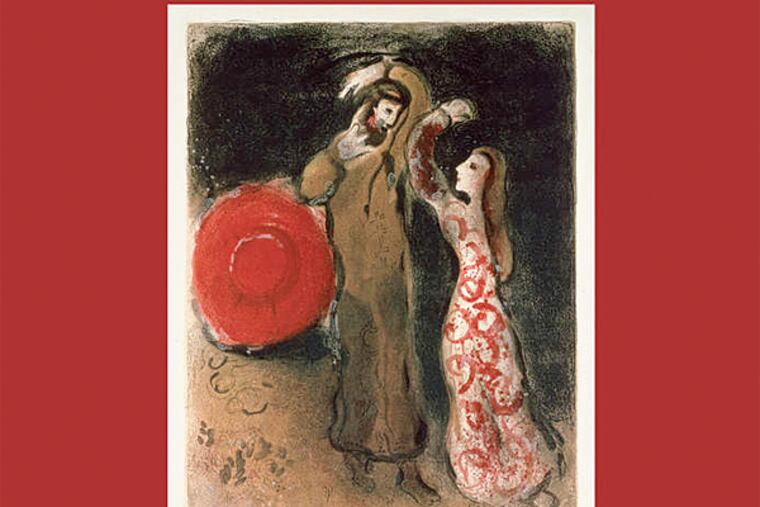Robert Alter refreshes the Bible
Why would you ever want to read another translation of the Bible? Answer: to read these beautiful works clearly, directly, savoring their wonders, on their own terms. We can do that thanks to Robert Alter, one of our finest scholars of the Hebrew Scriptures. Since his translation of the two books of Samuel in The David Story (1999), he has been working through the Hebrew Bible, seeking the most accurate, faithful translation, providing valuable notes.

Strong as Death Is Love
The Song of Songs, Ruth, Esther, Jonah, Daniel
Translated with commentary by Robert Alter
W.W. Norton. 320 pages. $27.95
nolead ends nolead begins
Reviewed by John Timpane
Why would you ever want to read another translation of the Bible?
Answer: to read these beautiful works clearly, directly, savoring their wonders, on their own terms. We can do that thanks to Robert Alter, one of our finest scholars of the Hebrew Scriptures. Since his translation of the two books of Samuel in The David Story (1999), he has been working through the Hebrew Bible, seeking the most accurate, faithful translation, providing valuable notes.
He does this so we can appreciate these books as literature. Theological comment is sparing, history and context presented in just as much detail as required.
Which leaves us these lovely, strange works (and they must have seemed strange even in their own times). All are late, written after the Israelites' release from Babylonian captivity (539 B.C.), in a time of literary innovation and experiment.
Three accent the feminine. The Song of Songs (a lovers' dialogue that gives more space to the female view) is one of the greatest love and sex poems ever written. "Let my lover come to his garden/And eat its luscious fruit," the woman sings, and her lover answers:
I have come to my garden, my sister, bride,
I have gathered my myrrh with my perfume,
I have eaten my honeycomb with my honey,
I have drunk my wine with my milk.
No further translation needed. Delicate, fervent, immaculate.
The Book of Ruth seems near-perfect, a marvel of sweet control. Alter sees it as "one of the few truly successful stories in any literature that concentrates almost exclusively on good people." Ruth, a Moabite, takes her Israelite mother-in-law Naomi's God as her own, and becomes the great-grandmother of David the King. Ruth - "I will lodge where you lodge" - is a touching monument to loyalty.
The scent of the exotic swirls around Esther, set in Persia, a supposed account of events in the reign of Ahasuerus. Alter thinks the writer tried to make the book "sound" old, with antiquated terms and Persian borrowings. It is a flamboyant, ironic, and not infrequently humorous tale of a great Jewish triumph.
Jonah is set in a world dominated by providence. The Lord - as Alter points out, "not chiefly the God of Israel but the God of the whole world" - speaks directly to men and reacts to their deeds and words. Jonah is one cranky, reluctant prophet, never angrier than when his mission succeeds (it saves Nineveh, a whole city of infidels). There are miracles, rescues - and consequences if you don't listen up.
Daniel, the youngest book, strikes Alter as creaky, stretching for effect, stilted. Much of it is written in Aramaic, then quickly supplanting Hebrew. Its theology of mystical signs, revelation, apocalypse, and miracle is different from older biblical books.
What a pleasure to read - as if for the first time. Alter has given fresh life to some of the most beloved, and puzzling, books in our heritage.
215-854-4406 @jtimpane